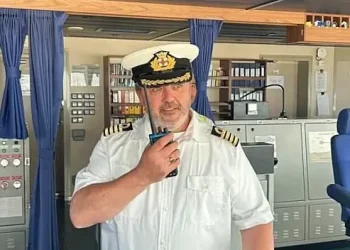National Bus Fare Cap Introduced
The UK government has confirmed that single bus fares will be capped at £3 from 1 January 2025 to 31 December 2025. This move follows the previous £2 cap, which was due to expire at the end of 2024.
The new cap is part of a broader £1 billion investment in bus services aimed at improving reliability and accessibility, particularly in rural communities and towns.
Implementation and Details
Under the new scheme, no single bus fare on included routes will exceed £3, while fares currently below £3 will only be allowed to increase by inflation.
This cap will prevent significant fare hikes that could have occurred without government intervention, such as the potential £13 increase on the Leeds to Scarborough route.
The government is providing £151 million to support the implementation of this cap, which is part of a larger £1 billion funding boost for bus services in the 2025 to 2026 financial year.
Economic and Societal Impact
The £3 fare cap is expected to have a significant impact on the affordability of bus travel, especially for those in rural areas who heavily rely on buses. This initiative is designed to promote greater use of buses, support economic opportunities, and ensure that vital bus routes remain accessible.
The cap will help millions of people access better opportunities and is seen as a crucial step in ending the postcode lottery of bus services.
- Savings of up to 80% on some routes, such as the Leeds to Scarborough journey.
- Implementation from 1 January 2025 to 31 December 2025.
- Over £1 billion total investment in bus services to improve reliability and protect vital routes.
Official Response
Buses are the engines of economic opportunity across the country. We know that reliable, affordable bus services are vital to keeping Britain moving. That’s why the government will cap fares at £3 for an additional year and provide over £1 billion to deliver better bus services.
Louise Haigh, Transport Secretary
This statement underscores the government’s commitment to ensuring bus travel remains affordable and accessible, while also emphasizing the importance of reliable bus services in supporting economic growth and community connectivity.
Current Situation
- Current fare cap of £2 set to expire on 31 December 2024.
- Previous funding for the £2 cap was due to end, risking significant fare increases.
- Forward-looking goal to empower local authorities to deliver modern and integrated bus networks through the new Buses Bill.
Regional Effects
The new fare cap will have varied regional impacts. For instance, passengers on the Newcastle to Middlesbrough route will save £5 (63% saving), while those on the Hull to York route will save £5.50 (65% saving).
Local authorities, such as those in London, West Yorkshire, and Manchester, can also fund their own schemes to keep fares down, further enhancing regional bus services.
The Road Ahead
The introduction of the £3 national bus fare cap marks a significant step in maintaining affordable public transport across the UK. This initiative not only prevents a financial cliff-edge for bus operators but also ensures that millions of passengers, especially in rural areas, can continue to access essential bus services.
This move is part of a broader strategy to revitalize the UK’s bus network, ending decades of failed deregulation and empowering local communities to take control of their bus services.
As the government moves forward with the new Buses Bill, the focus will be on delivering modern, reliable, and integrated bus networks that meet the needs of all communities.









